|
When my oldest son was 6 years old, he asked us if he could play football. Although I was a solid "no" because I felt it was unsafe, he was determined to play. One year later, after I had done lots of research and talked to many coaches, I decided to let him try it.
After just 3 weeks of practice, he asked me if he could quit. While a big part of me wanted to take his little hand and whisk back to my car, leaving his stinky football equipment on the field, a voice inside me told me that I shouldn't let him quit just yet. He decided to stick it out and see what a game was like before he made his decision. That first game day was magical. The sun was bright and hot, a perfect New England September day. The music pumped throughout the stadium and my son got to hear his name announced over the loud speaker at his high school's football stadium as he ran through streamers held by cheerleaders. Although I cannot recall for sure, I am fairly certain that I cried. I was so proud of him and his teammates. They had made a commitment to each other and to themselves. Even though he didn't play much that game, he was hooked. That season I got to see my quiet, insecure, and timid son change before my eyes. He was becoming more confident, more assertive, and more hopeful. Football was helping to reveal an amazing version of himself, a version I had always known was inside. So, when our youngest son became old enough to sign up for football, I didn't hesitate. He knew what he was signing up for - after all he had just watched his brother play two full seasons. Just 3 plays into his very first football game, he scored a touchdown on a quarterback sneak play. I suspect that moment will be one of the moments that sticks in the photo album of his childhood in his mind - one of those moments he'll tell his own children about someday. Today my family heads into our final youth football season and I am so thankful for the gifts football has given to us. Year after year, I have seen football's lasting impact on my boys' school work, friendships, and in their other sports. It has taught us all patience, compassion, and the power of commitment. Lessons we'll carry forever.
0 Comments
If your children play sports, you probably know all to well how hectic life can get during sports seasons. My children get a lot out of their busy sports schedules but so do I.
Being a sports parent continues to teach me new lessons every day, many of which are applicable to all other aspects of life, things like learning: how and when to bite my tongue (because no one wants to get ejected from their child's game by an ump); how to pack a bag that is prepared for anything; how to clean grass stains from white baseball pants; how to deodorize football pads; how to cram an insane amount of sports equipment and coolers into the back of my car. You know what else I get from all these years of youth sports? Sideline Parents: the parents, grandparents, and other family members of the other children on your own child's sports teams. You spend weekend after weekend, year after year beside them during your children's games and, if you are lucky, your sideline parents can teach you a lot: 1. THE VALUE OF SUPPORT Sideline Parents don't cheer only for their child. They cheer for everyone's child - even children on the opposing team. They know what to say to encourage my child behind the plate, in the field, on the mound, on the line of scrimmage, and at the foul line. They know when he is down and needs support. They know when he needs to hear silence. They get him. They are my surrogates when I am not at games, texting me scores and play updates and providing color detail like "he's smiling soo big after that hit!" Their support is not just for my son but for my entire family and I had no idea how important it would be to have such support in my family's life. 2. THERE IS CRYING IN BASEBALL (and football and basketball...) Despite what Tom Hanks may say, there IS crying in baseball. Sometimes there is lots of crying - both from the kids and the parents. The Sideline Parents are there to hand out tissues, give hugs, provide words of encouragement and, if needed, whisk you away behind a car so you can cry without your child seeing it. 3. LAUGHTER MAKES IT BETTER Let's face it, some of these games can be long. Sometimes there are double-headers. Sometimes we travel long distances. Sometimes our athletes get very very smelly. Sometimes our team just can't catch a break and we have a win-less season. The Sideline Parents can find a way to laugh together and make everything a little easier. 4. SOMETIMES SILENCE IS GOLDEN Sometimes we just don't feel like crying, laughing or talking. Sometimes we just want to show up at the game in our ugly sweats, grungy baseball cap, and not talk to anyone. You know what? It's ok. The Sideline Parents is there to give you space without judgement or pressure. They get it. They've been there. 5. BEST PLACES FOR POST-GAME DINNERS If you want to know the restaurant with the cheapest kid's meal options, shortest wait times or most flexible check-splitting policies, ask your nearest Sideline Parents. They know it all! 6. HOW TO GIVE SOME KICK ASS CHEERS A few years ago the only way I knew how to cheer from the sidelines was to meekly clap and yell "Yay!" and "Go!" Now I've got a whole slew of cheers and phrases to yell. I also know how and when to institute things like the wave and changing seats to help our kids rally. I've also learned when NOT to yell (maybe I learned that from the coaches...). 7. THE RULES OF SPORTS The Sideline Parents are where you can go to ask the ever important sideline questions like "What's that mean?" "Why is he out?" "Why is the game over?" Together you try to crack the signals from the coaches and learn the signs from the umps and refs. Watching each other learn a rule or sports concept that is new to us is exciting! You know what's even more exciting? Figuring out the score without a score board and being correct! 8. THE BEAUTY OF TOURNAMENT VACATIONS Summer baseball means weekends of baseball tournaments. Sideline Parents know how to find and suggest destination tournaments which will require a weekend away with other baseball families. 9. FAMILY ISN'T ALWAYS BLOOD So many of the parents I have met at the ball field have become my family. My sisters. Aunts to my children. Their children have become brothers and sisters to my children. They are the people that we invite to our house even when our house is a messy disaster. They are the people that we let see the real us. They are our family. 10. HOW TO EMBRACE THE NOW Childhood is short. So so short. Someday your children will beg you to avoid their practices, not sit so close to their game and not cheer so loudly for him. So, while we can, all of us Sideline Parents will continue to spend our free time watching our babies grow into young men before our eyes. All of the rest of the stuff can wait. We are going to embrace the now. Picture it: You are at a sporting event. All around you, there are sounds of swearing, fans shouting insults at coaches, and people arguing with each other. The air is filled with tension. People are yelling things like:
“Are you kidding me?” “Use your head!” “What is WRONG with you?” “What do you know? You shouldn’t even be an ump!” “We don’t have all day — make a play!” Just another day at any professional sporting event right? Nope. This is another day at a youth sporting event. Any city. Any town. Any sport. Any age. Kids. Teens. Our children. It is not a scene of which we should be proud. It is not a scene that is made any better if it is followed by a title like “Undefeated” or “Champs.” Let me be the first to publicly and openly admit I am guilty of some of these behaviors. Negativity can be a catchy little bugger, and I have found myself quickly sucked into the negativity vortex on more than one occasion. While I am being honest, I should admit that I have probably sometimes been the start of the negativity. But, I’m not proud of it. I can do better. All of us can do better. Isn’t it time we hold up the proverbial mirror and take a good, long, critical look at ourselves as parents of children in youth sports? Honest self-reflection is not easy; it is hard, painful work, and it is time to do the work. What would youth sports look like if we all practiced some of the following strategies? 1. Be proud, not boastful.I get it. There are moments when we want our children to feel like they are the best. Of course, we are filled with pride when our child makes the varsity squad or an all-star team or has the best stats. We should absolutely share that pride with the world! But, can we find a way to express pride in our children without putting down someone else’s child? Can we teach our children to be proud of themselves without being arrogant? Can we be a bit more mindful about HOW we express our pride? Can we help our children to win with grace and dignity? Do we really need to pit our children against each other? Where will that lead them as they move through the really difficult parts of their childhood and adolescence? 2. Let it go.It seems our social media accounts have become the high school cafeteria for adults--ripe with mean girl behavior and teasing. Passive-aggressive memes and posts litter our social media feeds, often under the guise of being funny or insightful or offering interesting comments and quotes. If we are being honest, though, sometimes they are nothing more than hurtful jabs at other parents and coaches or even other children. Will we tolerate such behavior from our own children in a few years on social media? I hope not. So, why do we allow ourselves to stoop so low now? Why do we tolerate it from our own friends when we see it? We are not going to like everyone and not everyone is going to like us. People will push our buttons and make us feel crazy, for sure. It’s our jobs as the grown-ups to find a way to cope with those feelings in a positive and respectable manner. We have to be the role models — even when we don’t want that job. 3. Point out the positive.Negativity spreads like wildfire. One coach, parent, ump, or child with negative energy can set off a chain reaction of negativity, and soon everyone has it. You know what it looks like. Slumped shoulders. Eye rolling. Head shaking. Slamming things. Muttering under breath. It happens. But, do you know what else spreads like wildfire? Positivity. It’s OK to cheer on 8, 9, 10, 11, and 12-year-olds. It really is. Yes, even after they make a mistake — even a huge mistake. You can still find something positive to say in most circumstances. Despite what some people say, I firmly believe that building up our children will NOT create a generation of helpless, spineless, whine bags. 4. Inspire improvement.I would never advocate only pointing out the positive and I am not advocating for participation trophies for everyone. We should absolutely be providing our children with clear and constructive feedback as we help them to be better versions of themselves. What if we were all a bit more thoughtful about how and when we provide such feedback to our children? When are we doing it out of anger and frustration versus the result of thoughtful consideration? Can we encourage our children to reach their goals without demeaning them in front of everyone? 5. Remember winning isn’t everything.Sure, state, district, and national titles would all be amazing. But, if you are being honest, how much would they really truly matter to our children in 10 years? Will such things define them? Will they define us? If so, what does that mean about us? Sometimes, it isn’t about the winning at all. Sometimes, some of life’s greatest lessons come from the loss. 6. Remember they are kids.We are raising children in a much different world and a much different time than when we were children. Today’s children have a lot on their plates in today’s world. Their lives are plenty hard enough right now. It’s easy to forget they are still children. Quite a few of them still hold tight to the stories of Santa Claus and the Tooth Fairy. Would it be terrible to let them just have fun and enjoy their youth? Would it be OK for them to enjoy the game, even if they lose? Next time you are at your child’s game, I encourage you to take a moment and breathe it all in. Look around at what is happening. These days are going to be over soon — for them and for us. How do you want your child to remember these times? How do you want to remember these times? Could we all do better? I believe we can. We should. For us. For each other. For them. Originally published on Her View From Home HERE Picture it: You are at a sporting event. All around you, there are sounds of swearing, fans shouting insults at coaches, and people arguing with each other. The air is filled with tension. People are yelling things like:
“Are you kidding me?” “Use your head!” “What is WRONG with you?” “What do you know? You shouldn’t even be an ump!” “We don’t have all day — make a play!” Just another day at any professional sporting event right? Nope. This is another day at a youth sporting event. Any city. Any town. Any sport. Any age. Kids. Teens. Our children. It is not a scene of which we should be proud. It is not a scene that is made any better if it is followed by a title like “Undefeated” or “Champs.” Let me be the first to publicly and openly admit I am guilty of some of these behaviors. Negativity can be a catchy little bugger, and I have found myself quickly sucked into the negativity vortex on more than one occasion. While I am being honest, I should admit that I have probably sometimes been the start of the negativity. But, I’m not proud of it. I can do better. All of us can do better. Isn’t it time we hold up the proverbial mirror and take a good, long, critical look at ourselves as parents of children in youth sports? Honest self-reflection is not easy; it is hard, painful work, and it is time to do the work. What would youth sports look like if we all practiced some of the following strategies? 1. Be proud, not boastful. I get it. There are moments when we want our children to feel like they are the best. Of course, we are filled with pride when our child makes the varsity squad or an all-star team or has the best stats. We should absolutely share that pride with the world! But, can we find a way to express pride in our children without putting down someone else’s child? Can we teach our children to be proud of themselves without being arrogant? Can we be a bit more mindful about HOW we express our pride? Can we help our children to win with grace and dignity? Do we really need to pit our children against each other? Where will that lead them as they move through the really difficult parts of their childhood and adolescence? 2. Let it go. It seems our social media accounts have become the high school cafeteria for adults—ripe with mean girl behavior and teasing. Passive-aggressive memes and posts litter our social media feeds, often under the guise of being funny or insightful or offering interesting comments and quotes. If we are being honest, though, sometimes they are nothing more than hurtful jabs at other parents and coaches or even other children. Will we tolerate such behavior from our own children in a few years on social media? I hope not. So, why do we allow ourselves to stoop so low now? Why do we tolerate it from our own friends when we see it? We are not going to like everyone and not everyone is going to like us. People will push our buttons and make us feel crazy, for sure. It’s our jobs as the grown-ups to find a way to cope with those feelings in a positive and respectable manner. We have to be the role models — even when we don’t want that job. 3. Point out the positive. Negativity spreads like wildfire. One coach, parent, ump, or child with negative energy can set off a chain reaction of negativity, and soon everyone has it. You know what it looks like. Slumped shoulders. Eye rolling. Head shaking. Slamming things. Muttering under breath. It happens. But, do you know what else spreads like wildfire? Positivity. It’s OK to cheer on 8, 9, 10, 11, and 12-year-olds. It really is. Yes, even after they make a mistake — even a huge mistake. You can still find something positive to say in most circumstances. Despite what some people say, I firmly believe that building up our children will NOT create a generation of helpless, spineless, whine bags. 4. Inspire improvement. I would never advocate only pointing out the positive and I am not advocating for participation trophies for everyone. We should absolutely be providing our children with clear and constructive feedback as we help them to be better versions of themselves. What if we were all a bit more thoughtful about how and when we provide such feedback to our children? When are we doing it out of anger and frustration versus the result of thoughtful consideration? Can we encourage our children to reach their goals without demeaning them in front of everyone? 5. Remember winning isn’t everything. Sure, state, district, and national titles would all be amazing. But, if you are being honest, how much would they really truly matter to our children in 10 years? Will such things define them? Will they define us? If so, what does that mean about us? Sometimes, it isn’t about the winning at all. Sometimes, some of life’s greatest lessons come from the loss. 6. Remember they are kids. We are raising children in a much different world and a much different time than when we were children. Today’s children have a lot on their plates in today’s world. Their lives are plenty hard enough right now. It’s easy to forget they are still children. Quite a few of them still hold tight to the stories of Santa Claus and the Tooth Fairy. Would it be terrible to let them just have fun and enjoy their youth? Would it be OK for them to enjoy the game, even if they lose? Next time you are at your child’s game, I encourage you to take a moment and breathe it all in. Look around at what is happening. These days are going to be over soon — for them and for us. How do you want your child to remember these times? How do you want to remember these times? Could we all do better? I believe we can. We should. For us. For each other. For them. Originally published 11/9/20 on Her View From Home: https://herviewfromhome.com/6-ways-youth-sports-parents-can-be-better/ Can you feel it?
I know I can. The tide has come in and the storm is raging again. Life has returned to the pre-quarantine pace - and I can’t catch my breath. Every day feels like I’m running a 5k and the finish line keeps moving. On this race route there’s no one handing out free cups of water. There’s no one cheering me on and offering me encouragement. There are no breaks. If I slow to a walk, I’ll surely be run over by the herd of runners around me. Life is back to how it was and here we are - racing full steam ahead and this week proved that my family and I are very much out of practice for this pace of life. Bat bags left in wrong cars. Sports water bottles left on car roofs. Evenings were spent scrubbing grass stains out of white baseball pants, washing uniforms, and being reminded that our dog has an affinity for athletic cups. There are no more family dinners. We now eat at 4pm or 9pm or in the car. Mail gets stacked anywhere there is an open space in my house and the dogs are angry that they have to actually be alone in the house for longer than 30 minutes again. Last night we even had to have a family meeting to figure out how we all can manage all our necessary commitments next week - (hint: we can’t do it without a clone or two). It feels like too much and I thought we swore we wouldn’t be here again. But as I watched my oldest laughing at first base the other night, watched my youngest warming up with his team this afternoon, and watched my husband coaching with his friends again, I realized that while this fast paced life is exhausting, leaves me breathless, and makes me feel completely unprepared most days, it also is a crucial part of my family’s existence. This pace of life leaves my boys standing together in our kitchen late at night swapping stories of their practices and games. This pace of life creates connection for all of us. This pace of life creates opportunities for growth for all of us. So tonight as I watch yet another game from the outfield, I’ll remind myself that every frantic second of this stage of life right now is worth it because this pace of life is where my family is most happy. Can you feel it? I know I can. Picture it: You are at a sporting event. All around you, there are sounds of swearing, fans shouting insults at coaches, and people arguing with each other. The air is filled with tension. People are yelling things like:
“Are you kidding me?” “Use your head!” “What is WRONG with you?” “What do you know? You shouldn’t even be an ump!” “We don’t have all day — make a play!” Just another day at any professional sporting event right? Nope. This is another day at a youth sporting event. Any city. Any town. Any sport. Any age. Originally published on Her View From Home. Click HERE to read full article. As the summer begins to wind down and fall begins to knock gently on our door, I typically find myself in my happy place—not because of pumpkin spice anything, or leggings and boots, or shiny new academic year planners and school supplies — but because both of my boys are boys of fall.
Article originally published on Her View From Home. Click HERE to read the full article. Recently, video surfaced of a physical fight that broke out between parents at a baseball game for 7-year-old children in Colorado. The cause of the fighting? Parents of the players disagreed with the 13-year-old umpire’s decisions. As video of the incident circulated over social media and even national news outlets, many people appear to be shocked that adults would display such terrible (and illegal) behavior over kids playing a youth sport.
I’m not shocked. Not even a little. As the parent of a 13-year-old baseball player, I have spent years watching the antics of parents at youth sporting events. Although I’ve never seen a full on brawl between the adults, I have seen parents, coaches, and even grandparents be ejected from games for heckling and arguing with child and volunteer umpires and referees. I’ve seen adults have to step between coaches and parents before fists started to fly. I’ve seen people’s cars get keyed by other parents over disputes that happened between their kids on the field. I’ve seen parents encourage their 8-year-old child to “get back” at another player by trying to deliberately hurt them. I’ve seen friendships and entire youth sports volunteer boards be torn apart because of disagreements about a game. So, when I see video of parents resorting to violence, I’m not even a little surprised. Bad behavior from adults is one of the primary reasons why my son will never ump a baseball game without one of his parents there — just in case the adults lose sight of the fact that they should be acting like adults. What is the cause of such behavior from adults? Perhaps it is all the stuff lurking beneath the surface. Maybe it’s the murmurs on the sidelines, the passive aggressive posts on social media, or the tendency of adults to try to pull the kids into their adult drama that creates this pressure cooker environment. Eventually all of this build-up leads to total chaos from the adults involved with youth sports. In short, adults simply are forgetting to be adults. Just last week while I cheered on my 13-year-old son’s flag football team, the mom standing beside me called the coach (my husband) the “R” word. Yes, the “R” word. Her friends standing with her quickly leaned in towards her, whispering and motioning towards me, clearly encouraging her to be quiet as the coach’s wife was standing within ear shot. “Oh I know. I don’t care,” she said in response. Nice. Her son is good friends with my son and she and I are Facebook “friends.” Had I not been able to have the wherewithal to take some deep breaths, find a way to have compassion for her lack of understanding, and excuse her poor choice of words, people would have seen a very ugly version of myself. A few days later, I sat in a restaurant for a birthday dinner with friends and suddenly the party went to shambles as another adult approached our table and began arguing with one of the party-goers. Restaurant patrons turned to stare, members of our party left abruptly, and I wouldn't have been surprised if fists had started to fly. What were they arguing about? What else? Youth sports. In a restaurant. At a dinner party. The truth of the matter is, I’ve been in the shoes of these adults that lose their cool. I’ve stood on the sidelines and wondered why my kids weren’t playing as much as others. I’ve seen coaches favor their own kids and restrict kids from playing as a way to get back at them for something unrelated to the game. I’ve been frustrated. I’ve asked questions. I’ve had strong feelings towards coaches and other parents. I’ve wanted to approach other parents and coaches in public and tell them what I really think of them. But, I don’t. I’ve never stood on the sidelines and loudly called someone the R word. I’ve never been kicked out of the stands. I’ve never resorted to physical violence. It’s hard in times like these to not just pull my kids out of every sport and move on with our life. But, the kids love it. At the end of the day, they don’t care much about bad calls or playing time or winning and losing. They don’t care about taking sides in a town-wide battle between parents who disagree about a selection of a coach. They just want to have fun. They just want to be kids. If we look hard, beyond the headlines of brawls at youth sporting events, beyond the passive aggressive social media posts, beyond the sideline comments, we can still see the heart of youth sports. Despite all the drama perpetuated by parents, at the core, youth sports are still a magical thing. During this same week as the baseball game brawl, sideline “R” word, and the restaurant argument, I also bore witness to some pretty amazing moments. An 11-year-old fell into the end zone to catch a game-winning touchdown pass and ran over to the stands, huge smile on his face, shouting “Mom!!!! Did you see that??? I caught it!! We won!!” It was pure joy for that little boy, his mother, and his entire team. Even the adults cheering for the other team were smiling back at the boy. I also witnessed a 13-year-old baseball player who had been having strike out after strike out the past few weeks finally hit a bomb to left field that drew every parent and kid to their feet and resulted in another huge smile from a child, his parents, his teammates, and the adults around him. I read a story about a baseball team, umpire, and coaches who decided to let a pitcher with a broken leg enter an inning for one batter to be able to say he played in a very important game. My own son, who has been restricted from throwing for the past 8 months due to an injury, finally got the clearance to start a return to throwing program and was able to warm up the right fielder before this weekend’s games. A small step, but huge for him. Even the adults around him made note and congratulated him. They knew how big of a deal it was for him and for his team that he was able to begin returning to the game he loves. I witnessed friendships being formed and strengthened on the sidelines between parents. I witnessed volunteers giving up their nights to run scoreboards for championship little league games and announce players names over the speaker. I witnessed childhood happening all around me and it was truly spectacular. These moments, the ones filled with pure joy and heart, not the moments filled with drama, are the ones that define youth sports. These are the moments that deserve to be circulated on social media and the evening news. These are the stories that matter. These are the stories that prove that we have not lost at youth sports, after all. The magic is still there. Sometimes we just have to look a little harder for it. |
ParentingParenting is one of life's greatest challenges and greatest rewards. Here we explore all aspects of parenting from pregnancy onward, highlighting both the struggles and the triumphs. Archives
July 2023
Categories
All
|
Sign Up For the Changing Perspectives Newsletter
Changing Perspectives with Jenni Brennan is supported by its audience.
When you purchase through links on this site, an affiliate commission may be earned. Learn More.
When you purchase through links on this site, an affiliate commission may be earned. Learn More.
Changing Perspectives Copyright © 2023

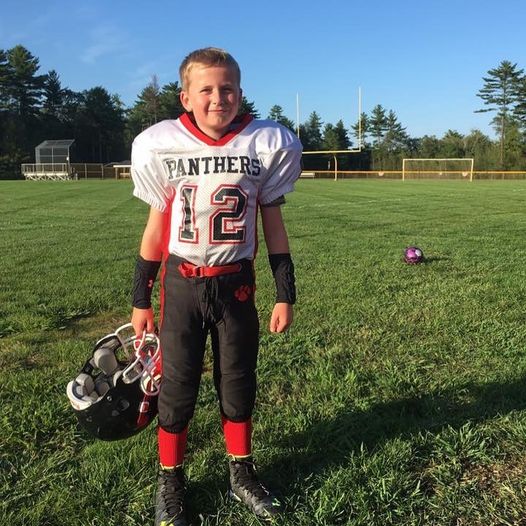

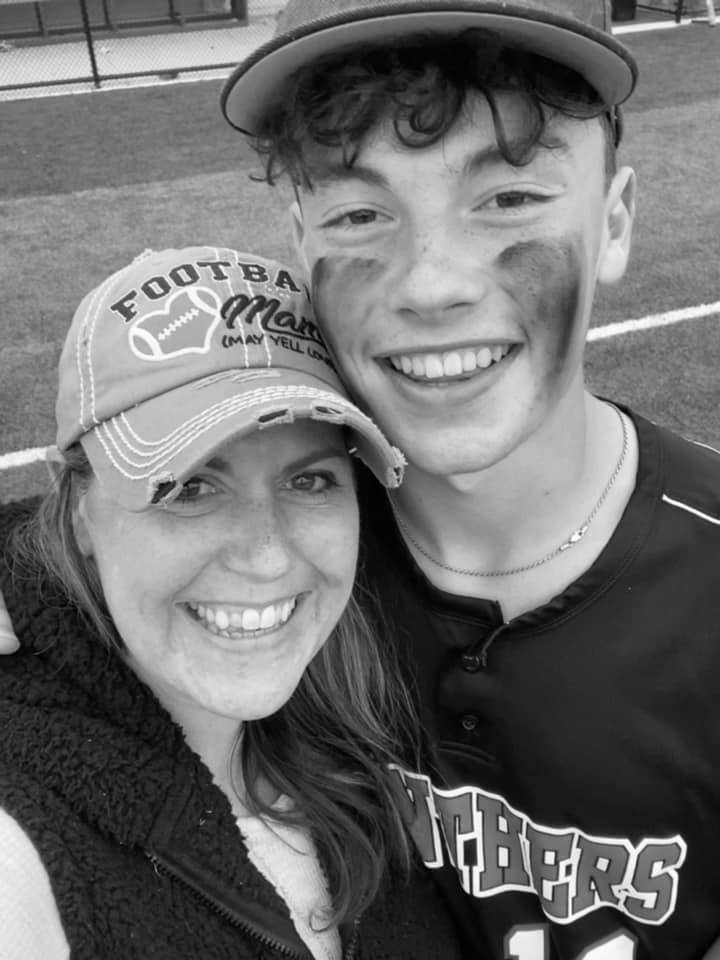
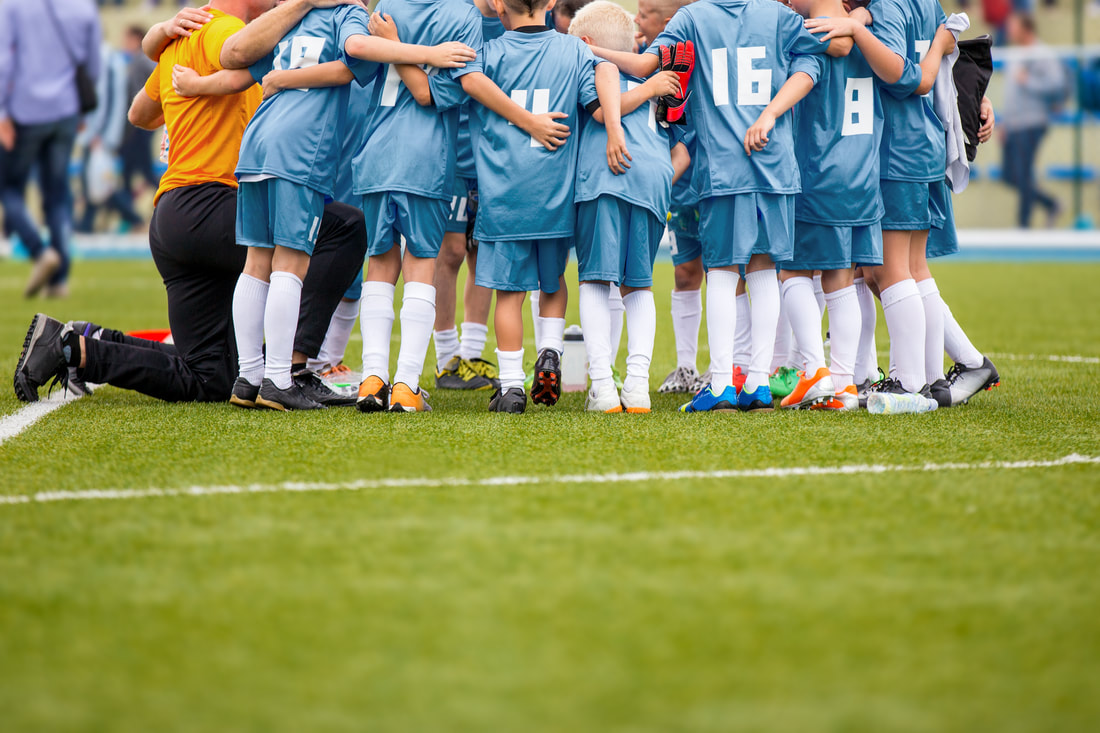
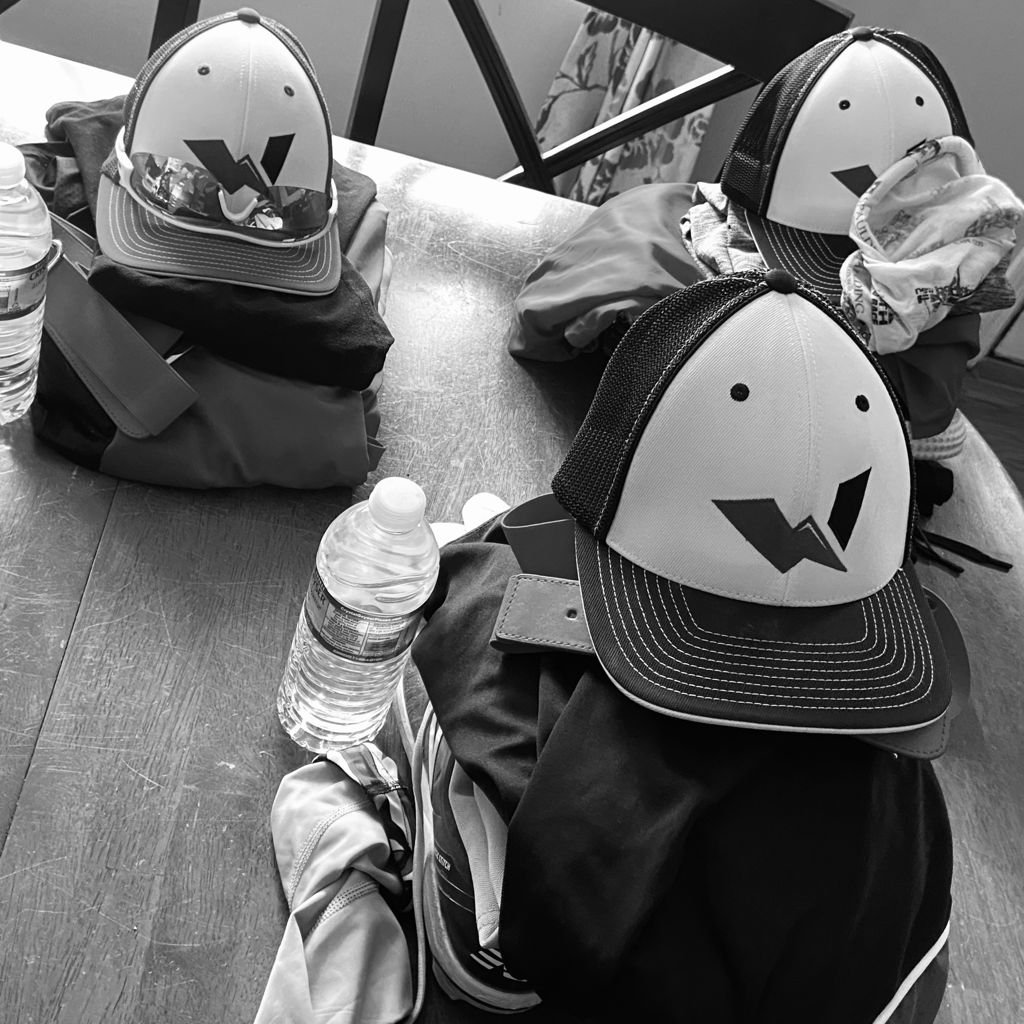


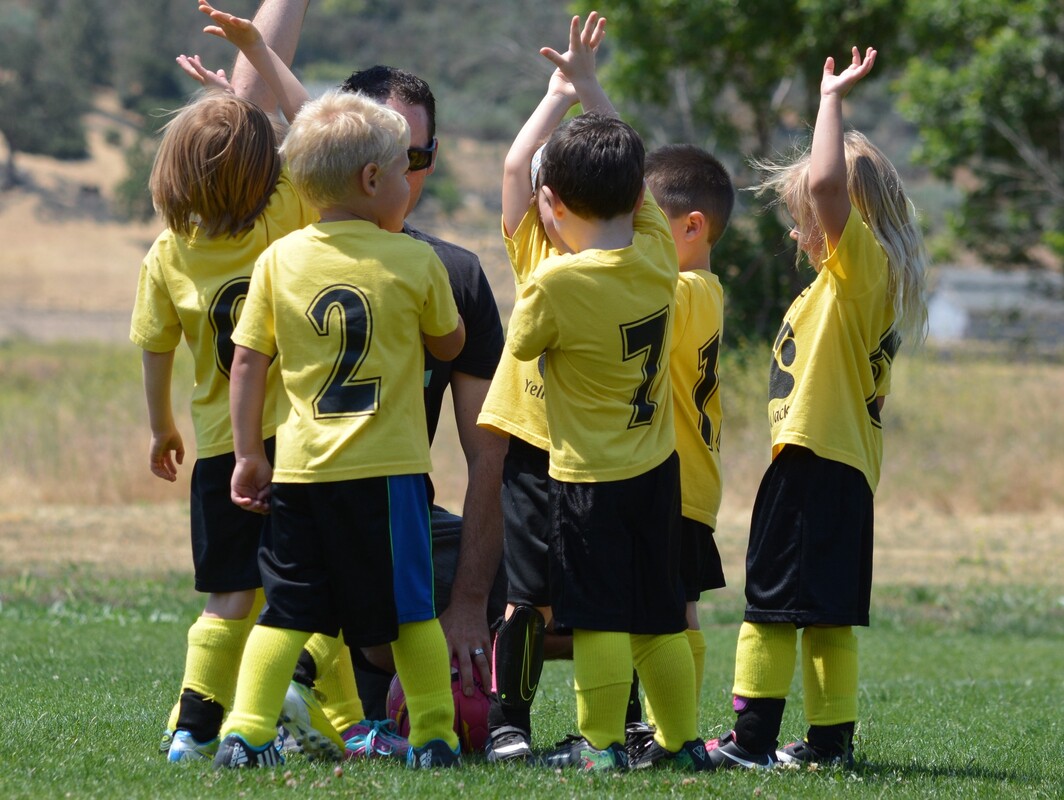
 RSS Feed
RSS Feed
